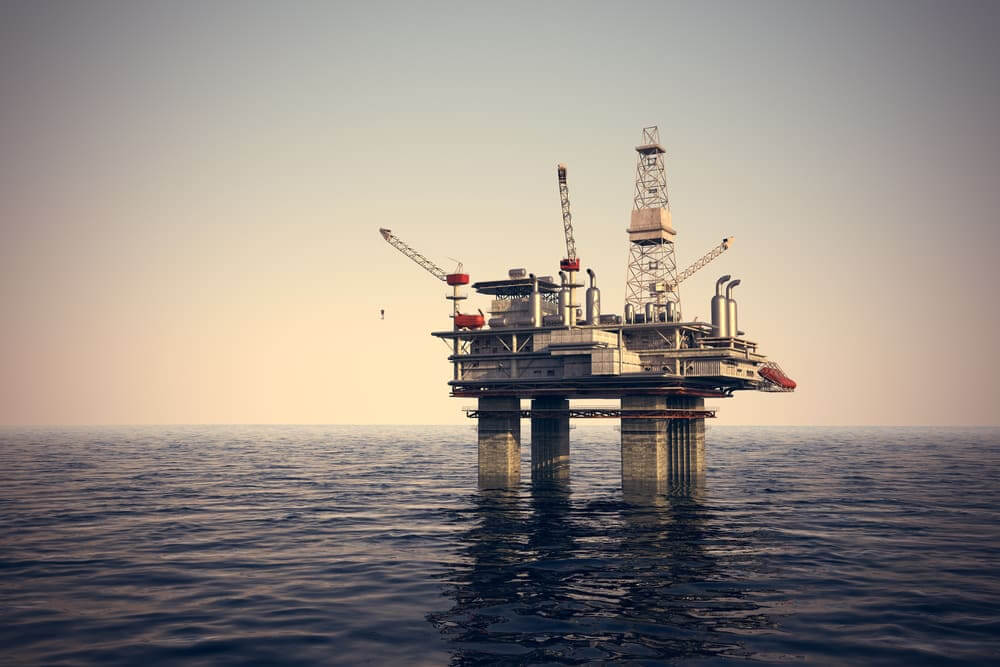
Oil extends losing streak
Oil prices fell on Monday, extending a recent losing streak, as investors worried that increasing US interest rates would reduce gasoline consumption.
Brent crude futures for September delivery declined $1.19, or 1.2 percent, to $102.01 a barrel by 0645 GMT, marking the fourth consecutive day of decline.
WTI crude futures in the United States for September delivery fell $1.33, or 1.4 percent, to $93.37 a barrel, down for the fourth day in a row.
Oil prices have been under pressure due to growing concerns that the US Federal Reserve’s aggressive rate hikes may slow the global economy and diminish gasoline demand.
Oil futures have been volatile in recent weeks as traders attempted to balance the possibility of further interest rate hikes, which could limit economic activity and thus reduce fuel demand growth.
On the supply side, Libya’s National Oil Corporation (NOC) said in an early Saturday statement that it aims to restore output to 1.2 million barrels per day (BPD) within two weeks.
Last week, the European Union announced that it would allow Russian state-owned enterprises to ship oil to third nations as part of a sanctions adjustment agreed upon by member states to limit risks to global energy security.

Impose a price cap on Russian oil exports
According to a Senior Biden energy advisor, the United States is still “a long way” from obtaining an international agreement to put a price restriction on Russian oil shipments, with scant excitement from the world’s top energy importers, India and China.
However, Amos Hochstein, President Biden’s Special Coordinator for International Energy Affairs, said he is confident that Russia will continue to produce despite the price cap because “their economy has nothing else.”
The Biden administration has recommended a price limitation on Russian oil exports to limit President Vladimir Putin’s oil income, which Hochstein claims is being used directly to fuel Russia’s war against Ukraine. The cap is meant to keep Russian oil prices low without completely cutting off supplies, which would cause a devastating surge in world oil prices.
However, some EU countries relying heavily on Russian oil have hesitated to welcome such a move. It is partly due to concerns that Putin will refuse to sell at a price, thereby cutting off Moscow’s supply.
Following a decision by European Union member states to relax sanctions to allow Russian state-owned firms to ship to third nations, US crude prices dipped below $95 per barrel for the first time since April.
However, critics of the administration’s planned policy remain doubtful of its effectiveness, partly because Washington has yet to receive assurances from the world’s major customers, India and China, both of which are leery of upsetting their long-term relationships with Moscow.

High crude prices are here to stay
Crude oil has been falling in price recently as mounting concern about a worldwide recession weighs on it. However, oil is not falling as much as drivers worldwide would like it to. Unless a major catastrophe destroys demand, the oil will remain expensive for the foreseeable future.
The oil-producing cartel has frequently stated that it is not in a hurry to deploy its spare capacity to increase global supply and lower prices. One reason is the oil price, which Saudi Arabia has been boosting for Asian purchasers for several months because it can. Another factor is that available spare capacity is limited.
While analysts debate OPEC’s spare production capacity, shale drillers in the United States maintain their cautious approach to production growth, despite persistent calls from the White House. Since these calls have clearly stated that the energy transition is still the top priority, the industry has been slow to respond.
Meanwhile, investors continue to put significant pressure on public players in the US oil business, not just there. Investors are particularly focused on Big Oil. It’s not simply the pressure to continue returning cash after years of burning it while pumping as much as possible until prices fall. It is under pressure to demonstrate greater climate-related responsibilities.




